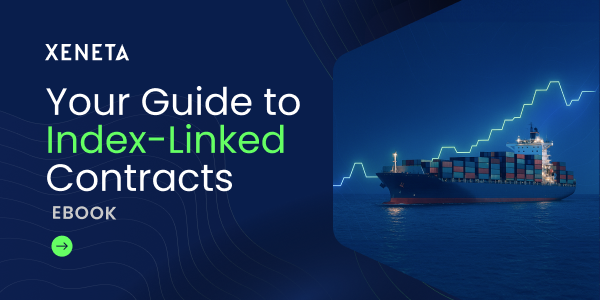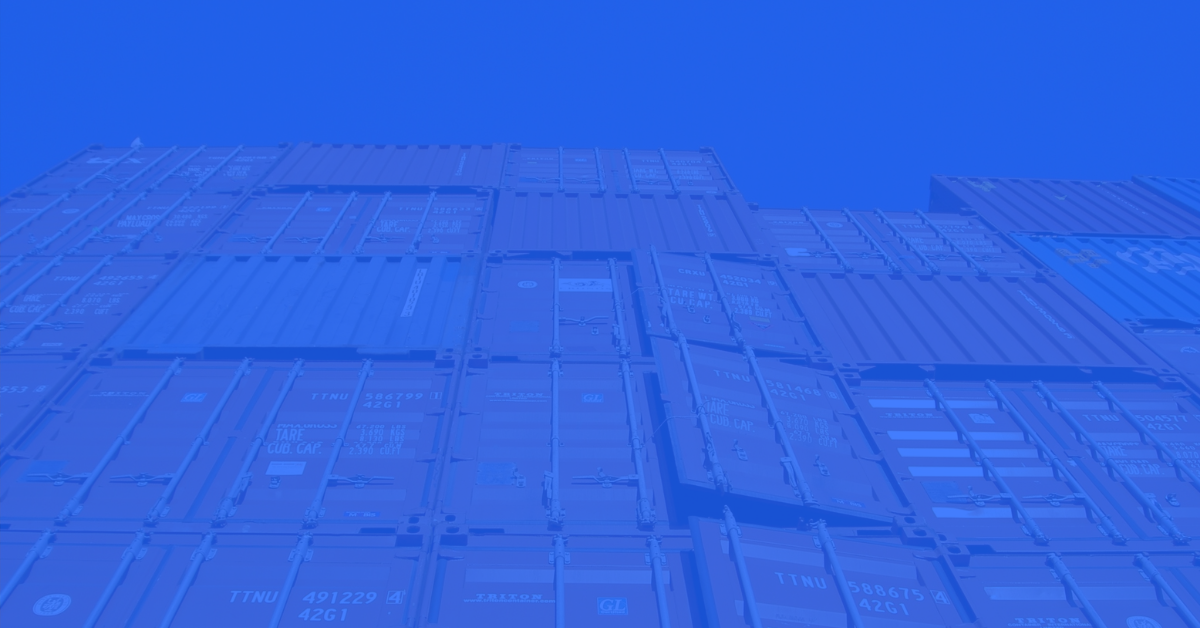The Russia-Ukraine war will continue to have far-reaching effects on global trade, technology, and shipping. For shippers, it’s important to identify and understand the implications of the war as well as sanctions on Russia on shipping and the freight market. Check out the latest Xeneta updates from the news to foresee potential risks to identify market movements and prepare your organization for a change in your approach to how and when you procure and negotiate rates in the market.
In a recent conversation with Jonathan Saul from Reuters, Peter Sand, Xeneta's Chief Analyst, discussed how Russia's shipping trade is sliding after the Ukraine invasion.
“Shippers with cargo bound for Russia are asking, ‘What can I do?’ As major European carriers have stopped calling Russian ports, importers with cargo bound for St. Petersburg and Novorossiysk faced a barrage of issues,” said Peter.
“As their cargoes are now spread out in different ports all in the wrong place with the main (European) ports shying completely away from handling Russia-bound containers.”
Figures from Xeneta also show a dip in rates on the Black Sea and Baltic trades, as trade with Russia and Ukraine comes to a halt due to sanctions and many carriers’ decisions to no longer accept bookings to or from the region. In general, shippers can expect to see increased bunker adjustment factors as bunker costs rise. Read the full story by Lloydslist here.
What does it mean for global trade and supply and demand?
"It means that global logistics just got a little bit more difficult to handle than the critical situation already suggests. I guess it's known to everyone that global supply chains are quite strained at the moment as a result of two years battling COVID. So having now Russia cut out of the global shipping and networks accounting for some 2% to 3% of global containerized goods, is obviously, another disruption on top of what we see already in the market," said Peter Sand, Chief Analyst, Xeneta while talking to Yahoo Finance.
Source: Russia-Ukraine: Global supply chains 'just got a little bit more difficult,' analyst says
“Shying away from sanctions is a key risk,” said Peter. "That means higher prices for bulk shipping, which will make it more expensive to trade and ship around the world.” Read the full commentary here: War Shocks Ripple Across One of World’s Busiest Trade Lanes | Bloomberg Quint
“Before the pandemic, the capacity was always there when needed. That’s not what we’ve become accustomed to over the past couple of years,” adds Peter.
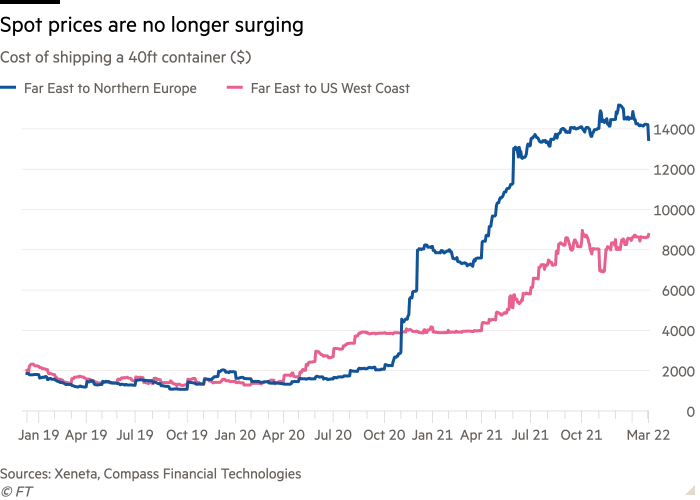
It’s still a carriers’ market at the moment. And they set the bar high.
Read the full commentary by Peter Sand here: Russia sanctions spur surprising new relationships | Financial Times
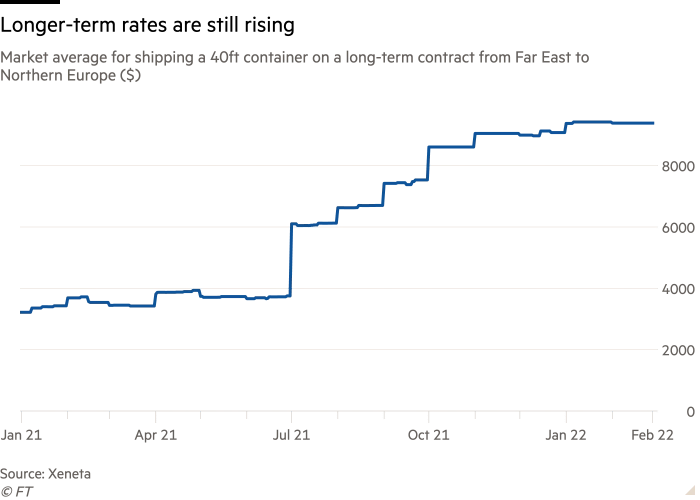
Xeneta estimates that Russian exports and imports of containerized goods make up around 3% of world volumes. For Russia, the suspensions will be a further blow to its economy and citizens’ living standards as imported goods risk becoming more scarce. Prices for some electronic goods have already spiked about 30% as the ruble slid, according to a Facebook post from the director of the Russian electronics chain DNS.
“This means more for Russia than it does for world trade,” added Peter. “It will impact the general public in Russia as well as companies.”
Read more: Russia Gets Cut Off From World Trade as Shippers Halt Cargoes | BNN Bloomberg
European ports and terminals avoid handling containers to/from Russia | Xeneta Newsroom
Only yesterday, we saw new sanctions coming from the EU, essentially targeting the exports of maritime navigation equipment into the likes of Russian shipyards.
"From a shipper perspective, this is likely to be a sanction implementation that will have very little impact on you, but I think it's absolutely fair to say that the disruptions brought around by, several carriers, not calling at Russian and Ukrainian ports while others are still doing that. We also see freight forwarders are still carrying out business." - said Peter Sand in Xeneta Newsroom on March 10, 2022.
Watch Full News Update HERE
Air Freight
“Airfreight market conditions feel insignificant when you see what is happening in Ukraine and the suffering of the Ukrainian people since Russia’s invasion,” said Niall van de Wouw, Chief Airfreight Officer, Xeneta.
“The war in Ukraine is another example of an external event of which the air cargo industry has no control over, but which is having a profound impact, as happened with Covid. When we consider the recovery of the aviation industry from the pandemic, the return of passengers is still a big question mark. The war in Ukraine presents another big question mark, particularly over Europe-Asia trade flows. It is difficult to estimate what this could mean down the line.”
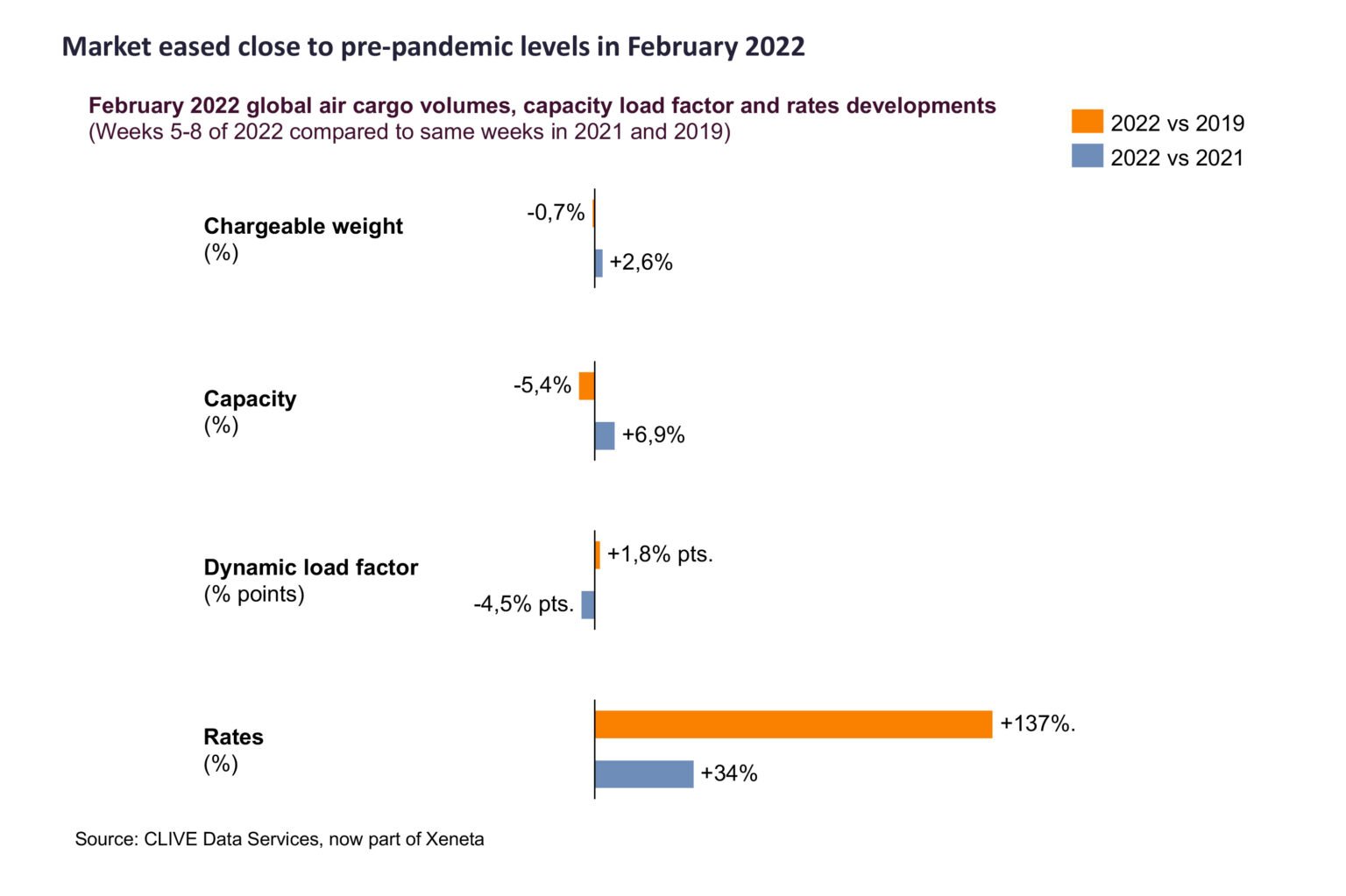
Read the full report: Air cargo market close to pre-pandemic levels but uncertainty ahead | Air Cargo News
.png)

